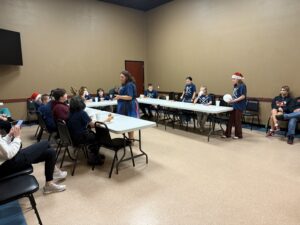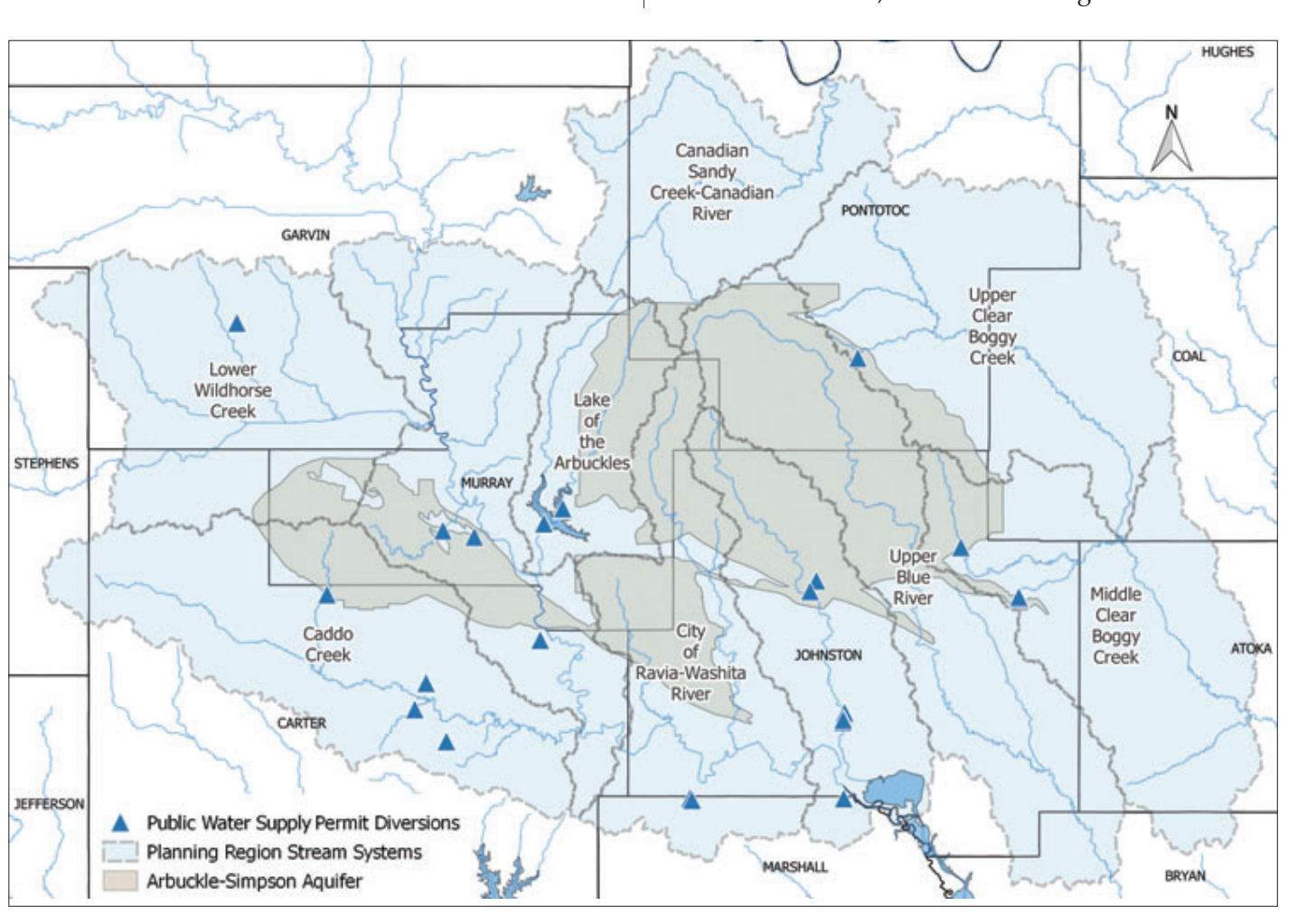
From Policy to Innovation: The Role of Water Clusters in Economic Growth
March 5, 2024 by Jessika Leatherbury
By: Sunnie Dawn Baker
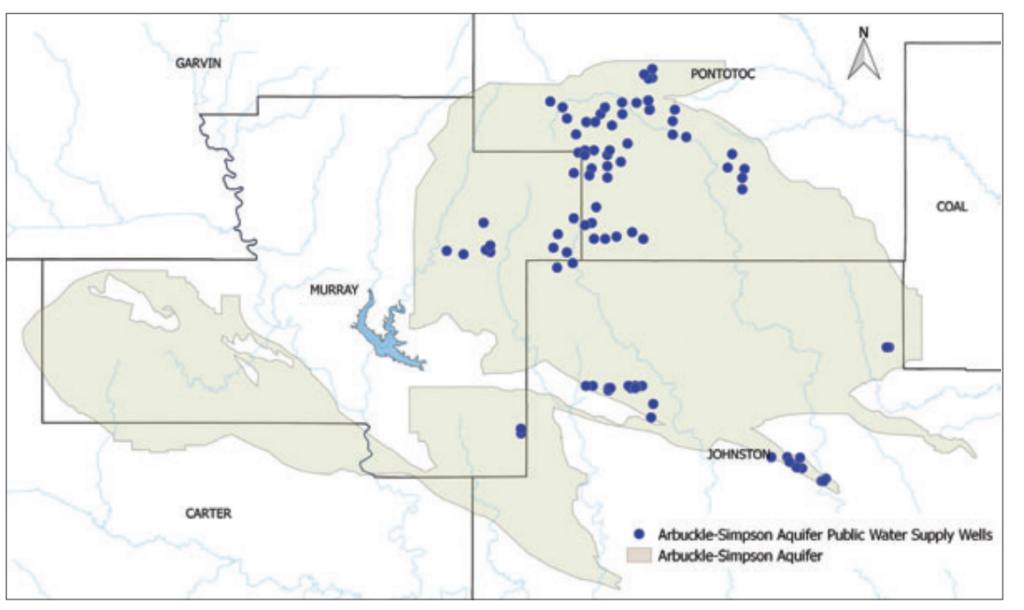
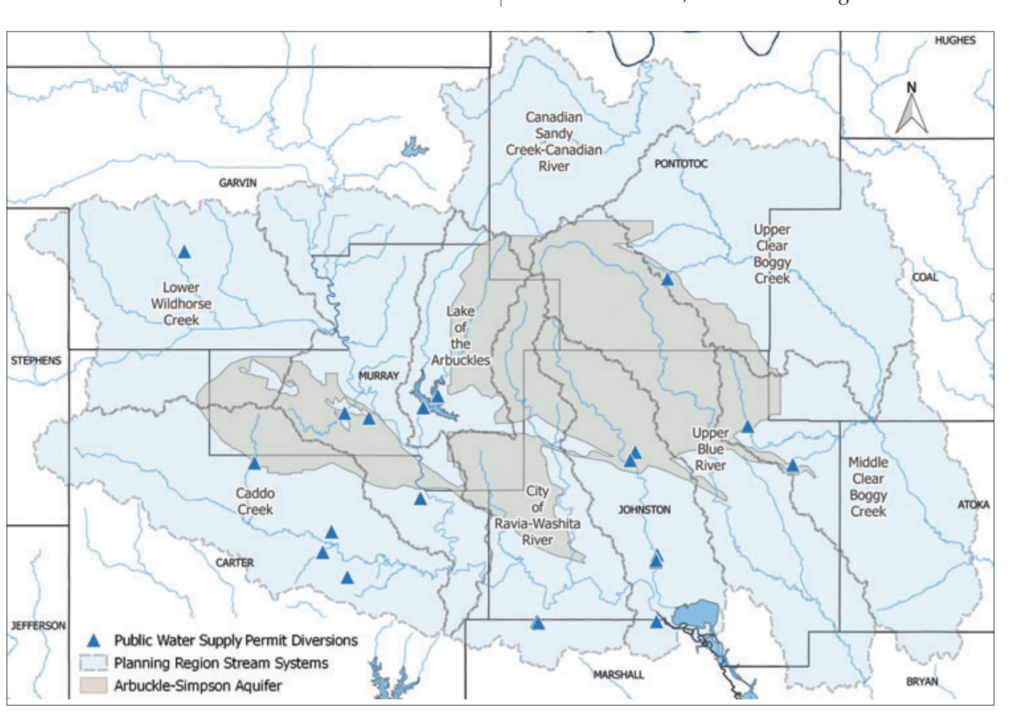
Water is not only essential for sustaining current needs but also crucial for driving economic growth. In towns like Ada, the potential for economic development linked to water is immense. By fostering partnerships among local institutions and organizations, Ada can emerge as a leader in water innovation, policy, and technology, paving the way for sustainable economic progress.
The Ada Jobs Foundation (AJF) is pursuing a strategic avenue for development known as “water clusters.” According to Daniel Castañeda, Economic Development Specialist for AJF, “A water cluster is a network of different organizations such as local governments, non-profits, and education systems, working together to help support economic prosperity within water innovation.” Successful development of water clusters hinges on collaboration, but in Ada we are lucky to have many different partners working together to make this idea a reality. The end goal is to achieve sustainable water sources, spur economic growth, and create jobs.
On January 19, 2021, the Environmental Protection Agency published their report titled the “Economic Impact of Water Technology Impact Clusters.” They asserted, “Across the United States, water technology innovation clusters are producing new cost-effective technologies, creating jobs, and improving the quality of our nation’s water infrastructure. These ‘clusters’ are groups of people from the private, public, and academic sectors who share information and resources to spur economic development in their own regions’ water industries.” In the case of Ada, these groups primarily belong to three different categories: education/research, policy, and business/entrepreneurship. Ada is fortunate to have institutions such as East Central University, the Oka’ Institute, the Robert S. Kerr Environmental Research Center, and the Chickasaw Nation. These groups work closely with the City of Ada and the Ada Jobs Foundation to form the backbone of an emerging water cluster in the area.
While research plays a critical role in developing sustainable water technologies and innovations, policy is equally important. This is one reason East Central University offers a Master of Science in Water Resource Policy and Management. Dr. Christine Pappas, the Director of this program, has seen the positive results of this program firsthand. To date, the program has graduated over 50 experts in the field. These graduates work to maximize grant funding by collaborating with tribes and municipalities to develop additional water infrastructure. Pappas says, “We have seen economic growth in cities when they build more pipelines and dig more wells.” However, much of this growth would not be possible without individuals well versed in the policy side of matters. Funding is crucial to water infrastructure, and many towns simply lack the necessary funds. Yet, with individuals equipped to assess needs and possess the expertise to secure resources, such critical infrastructure enhancements have the potential to drive significant economic growth.
AJF also plays an instrumental role in the water cluster approach to economic development in other ways. Through his Business Retention and Expansion efforts, Castañeda attends the WEFTEC conference in Chicago. While he was there this past year, Castañeda spent his time meeting water people from all over the world. He primarily meets with businesses to see what they do in order to see if they are wanting to expand or relocate to Ada. Relationship building will yield a payoff down the road, especially as the existing water cluster in Ada continues to grow.
Another aspect of AJF’s involvement with water clusters is through the Conduit Initiative, where the team actively promotes the cultivation of tech entrepreneurs. Given the abundant water-focused research and educational resources in the area, water innovation and technology align seamlessly with the accelerator programming and the upcoming commercialization workshop. This initiative not only fosters entrepreneurial spirit but also catalyzes the translation of innovative ideas into viable commercial ventures, further bolstering Ada’s position as a hub for water-related advancements.
Increased engagement, cooperation, and collaboration within all water-related sectors lead to more information, innovation, and economic growth. Ada is on the precipice of becoming a major force in the world of water innovation. Every participant in the water cluster contributes to its success, representing distinct pieces of a puzzle that, when combined, create something greater than the sum of its parts.
Sign up to receive more news from the Ada Jobs Foundation HERE!
Written by
Jessika Leatherbury
You may also interested in:

Adapt and Overcome: Allison Poe’s Recipe for Resilience and Growth
By: Sunnie Dawn Baker Allison Poe has always followed her feet. She waits for the signs to appear and, once she recognizes them, she travels that path, and has never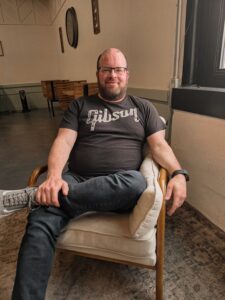
Jeff Warren: A Life in Sound, Vision, and Storytelling
By: Sunnie Dawn Baker When Jeff Warren got involved in the Houston music scene as a teenager, he had no clue where his path would lead. Now, nearly thirty years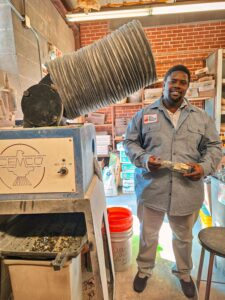
From Pitch to Progress: ECU's Glass Recycling Program Turns Waste into Opportunity
By: Sunnie Dawn Baker In 2018, Dr. Christine Pappas competed in Ada Jobs Foundation’s Big Pitch Competition by promoting grinding glass bottles into sand. She won the Big Pitch that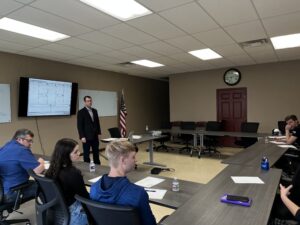
The Importance of Customer Discovery: Know Your Audience and Know Your Market
By: Sunnie Dawn Baker Entrepreneurs and small business owners must consider many factors to achieve success, with their target market being one of the most crucial. Sometimes, when people are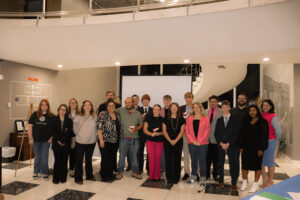
What Does Economic Development Do for You? The Significance of the Economic Multiplier
By: Sunnie Dawn Baker People often find the term “economic development” vague and confusing. Understanding how economic development works and benefits the community can be challenging. Though there are many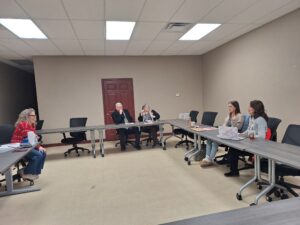
Helping Entrepreneurs One Workshop at a Time: Lauri Rowe and QuickBooks for Small Businesses
Entrepreneurs tend to be filled with passion and big ideas. They have found a solution to a problem they see in the world, and they barrel ahead, excited for their
Hunter Cook: Technology, Entrepreneurship, and the Written Word
By: Sunnie Dawn Baker Hunter Cook started writing when he was seven years old. At first, he wanted to write comic books, but then he realized he couldn’t draw. He
Empowering Native Artists: FAME App Brings Innovation to First American E-Commerce
By: Sunnie Dawn Baker Entrepreneurs are problem solvers. They are constantly striving for solutions to issues they see in the world or in their own lives. In the case of
Learn, Connect, and Grow: 2025 Workshops for Aspiring and Current Business Owners
By: Sunnie Dawn Baker A new year brings new possibilities, and, at the Ada Jobs Foundation, it also brings a new round of programming and workshops. As the local Economic